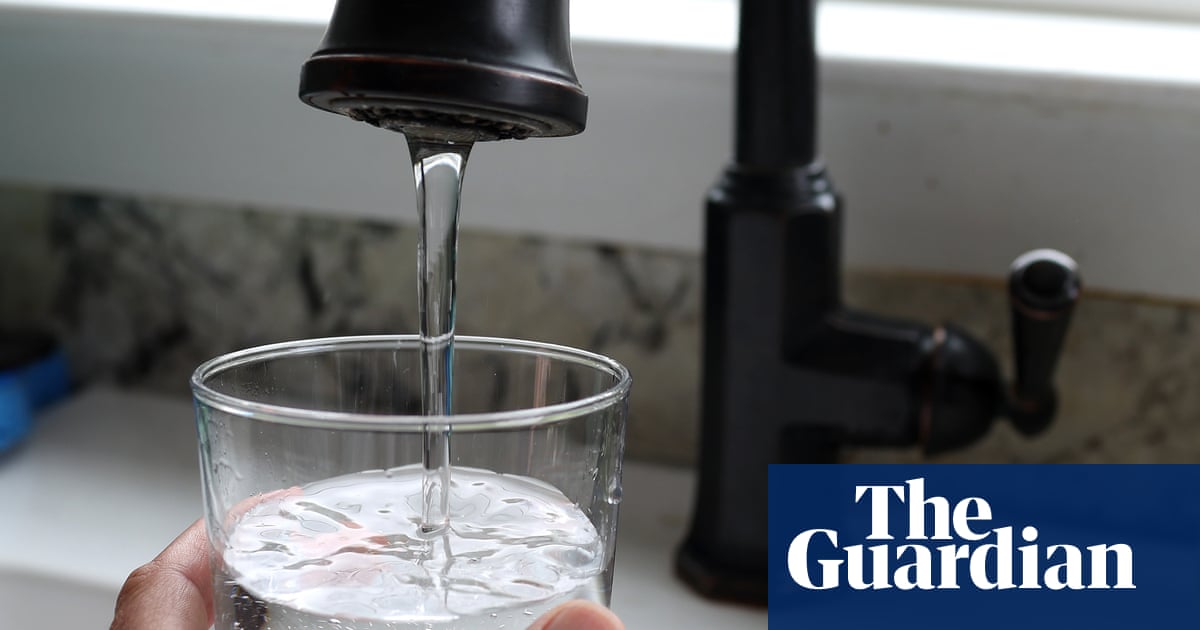Most of these comments are people recommending bottled water or various filtration methods, both of which could work in varying degrees. Let’s not miss the point that people who will be most impacted are low income and might struggle to pay their tap water bill. Bottled water and filters are a stretch for those folks. The true fix is demanding more of our politicians to hold polluters accountable and push for better treatment of the tap water.
Aren’t people paying taxes?
No idea why people would rather spend more money than to hold the government accountable to fix the services they pay for.
I live in the Cape Fear area of North Carolina and we are dealing with this. Chemors, the maker of Teflon, has been dumping PFAS in our water.
My town recently built a reverse osmosis water treatment plant. It is the only way to get it out of the water. Traditional water filters don’t work.
Bottled water is the fucking problem. Don’t whinge about anything climate based if you recommend plastic. The disconnect on solving contaminated water with plastic water bottles s mind boggling.
If you don’t have a water source very close plastic beats glass very fast.
Glass is so much heavier that the additional fuel to transport it over 100km offsets whatever emissions plastic creates.
This is the classic “no good option” dilemma depending where you live.
In many parts of Europe you can buy the locally sourced water from glass bottles - but it doesn’t make much sense buying glass bottles for climate change reasons otherwise
deleted by creator
Yeah using the local tap water and adding a water filter if necessary is the best option for sure
As long as the companies providing the water a) make more than enough profits and b) are not held accountable, why should they do anything about it?
Because it’s morally right? But I get your point and understand the question isn’t meant to be answered.
“Morally right” does neither rise the shareholders profits nor the managers bonus.
this guy capitalists
Know your enemy!
Everyone for years - “Why do you waste money on bottled water” (the big 5 gallon kind on a dispenser)
Me - Uh, have you ever had tap water?Yeah, no, you’re just paying to drink tap water and making a shitty company like Nestle rich in the process in addition to creating more waste.
Do yourself a favor and get a nice stainless steel or glass waterbottle along with a good filter or better yet, purifier. They won’t get rid of everything but they reduce a lot of stuff you don’t want to drink (like lead) and taste better than tap water.
What material are those bottles made out of by the way?
I’m a fan of under sink filters. Dead simple to install and replace the filter. I never trusted those dispensers because many of them are just local tap water.
I doubt your house filter removes PFAS either.
Why? PFAS is pretty large, and is readily removed by activated carbon, particularly GAC (Granular Activated Carbon), Ion Exchange Resin, and Reverse Osmosis. Multistage RO filters are “Dead simple to install and replace”. Do you have any reason, or is doubting just a way of life for you? FWIW, I have RO filtration for my drinking and cooking water. You might want to consider it.
Reducing PFAS in Drinking Water with Treatment Technologies
https://www.epa.gov/sciencematters/reducing-pfas-drinking-water-treatment-technologiesCited in the article:
Data Summary of The Fifth Unregulated Contaminant Monitoring Rule
https://www.epa.gov/dwucmr/data-summary-fifth-unregulated-contaminant-monitoring-ruleReverse Osmosis filters do.
It’s spring water from sparkletts. I made sure not to get just filtered tap water. Unless they are flat out lying about what is in the bottles (not saying it’s even a far stretch, but I can’t do any more due diligence)
That water isn’t much better. But that’s why I fill my 5 gallon jugs with the distilled water (self distilled tap water).
Better be distilling multiple times to get rid of PFAS.
It’s literally the most effective way to get rid of PFAS. I’m ok with over 99.x% PFAS free for water after just one cycle
Exactly. One thing I’ve learned from areas with unsafe drinking water is the beauty of stores dedicated to providing purified water (delivery an added bonus). Going back to the US and drinking “safe” tap water has always been pretty gross after that, even in houses with some filtration systems.
A home-based RO system would be nice, but I’ve always wondered if the ones people usually get (<$500) can compete with the quality of the commercial suppliers/stores that you typically see in other countries. Likewise for the small fill stations common on the outside of US grocery stores. Are all these systems truly of similar quality? I have a hard time trusting those tiny little under-sink setups and the unattended outdoor water fills.
I’m imagine it depends who the service company for the filling machine is. Our delivery is from sparkeletts, and I made sure to get the spring water, not the filtered water.
I agree. ”It depends” seems like the right answer to me.
Having access to clean, tested spring water seems ideal. You’re a lucky one!
But for areas dealing with contaminated water (whether it’s PFAS, lead pipes like Flint Michigan, or literal shit and commercial chemical dumping from areas with lackluster water treatment, mostly outside the US) then “it depends” seems the right answer.
What’s the RO membrane rating? Does the system have UV? Charcoal? Remineralization? And do they perform the necessary maintenance? Seems like these are the critical factors about the system and might be found in someone’s home, might be at the stores, but it depends!
I lived the majority of ky adult life with a roommate who kept a 100 gallon salt water coral aquarium for almost a decade. One of the most expensive, difficult, time demanding hobbies I’ve ever seen. He couldn’t afford to replace the 20 or so gallon that needed to be replaced every couple weeks to keep the salinity and other chemical levels stable, so we had one of those under the sink RO filters. It always tasted great unless he forgot to change the filters. I worked at a Starbucks for quite a while and they basically just have a larger version of that which is changed out whenever the sensors ping their maintenance hq. Water there tasted the same.
Plastic bottled water to me is one of the ultimate fuck yous to the planet’s ecosystem that most people could easily stop today. It’s telling that the consumable plastic market is primarily owned by the oil companies, hell it’s one of the many products that can be developed from the refinery process. Short answer is get a metal thermos or canteen and refill it with RO or some other filtered water, get one of those Brita pitchers if you can’t or won’t install an RO, and cut back on your plastic containers as much as you feasibly can.
My thoughts are more centered on true purity and safety, but it’s usually a good sign if it at least tastes better! As we learn more about water contamination, it seems like a well-designed and well-maintained RO system is a good idea for people who want to help protect their health.
Single-use plastic water bottles are basically a crime against humanity, especially when used frivolously (drinking bottles filled with tap water of the same quality that comes out of the faucet). But the reusable 5-gallon jugs are a different category, in my opinion. In many places, these large plastic containers are by far the most popular lifeline to safe drinking water. Of course I’d prefer metal or glass, but the logistical challenges and availability make them a problem.








